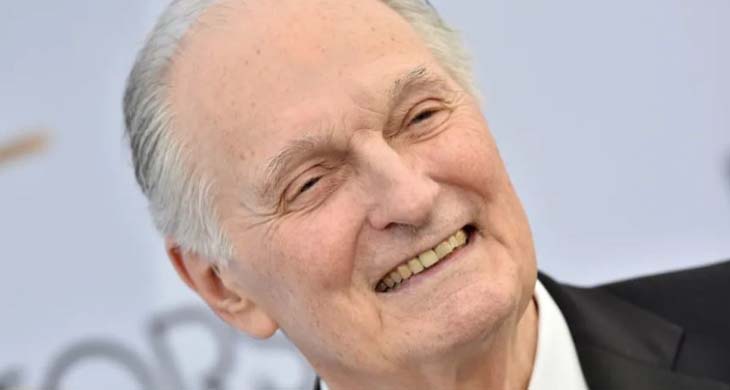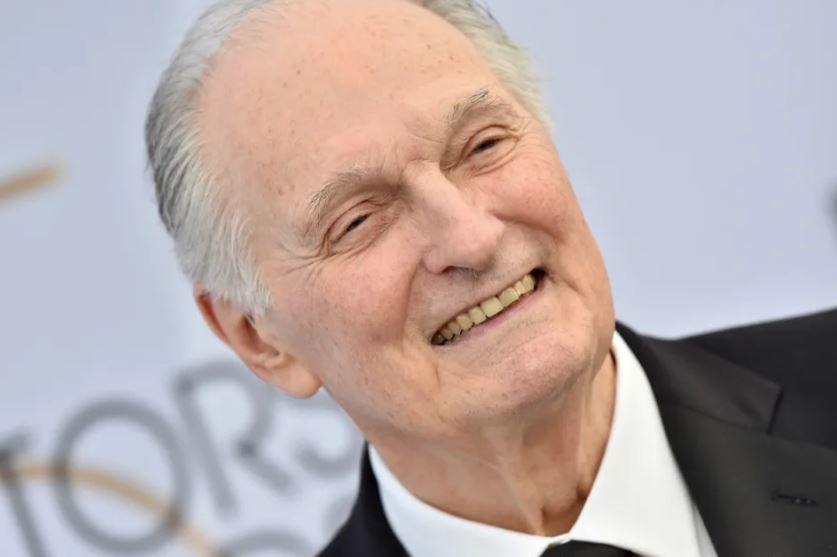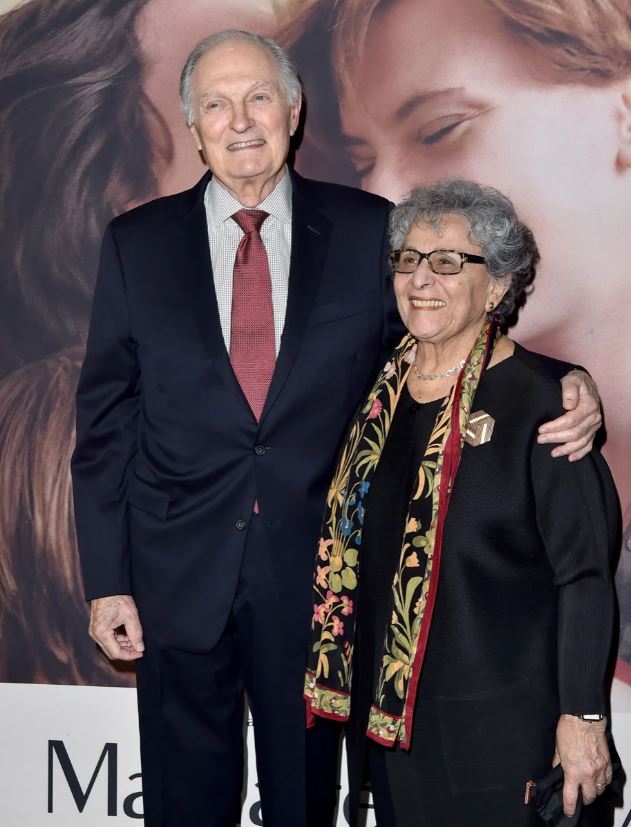Alan Alda Describes His “Biggest Struggle” After Being Diagnosed with Parkinson’s Disease.

Alan Alda, best known as a wartime doctor on MASH’s iconic dramatic sitcom, is now considered a Hollywood veteran at 86. But, in 2018, the beloved actor revealed that he had been diagnosed with Parkinson’s disease three years prior.
Today, Alda is speaking out about the “greatest difficulty” of living with the condition and how his attitude on life has altered since his diagnosis—but not his objectives.
Please continue reading to find out what he considers the most challenging aspect of his Parkinson’s disease case and what he’s doing to limit the disease’s progression.

After detecting this unusual symptom, Alda was diagnosed with Parkinson’s disease in 2015.
Alda came across a story in 2015 in which a group of clinicians described a strange Parkinson’s sign they had encountered in some of their patients: they were prone to physically playing out their dreams while still asleep, a condition known as REM sleep behavior disorder.
“I realized I had done exactly that,” Alda said in 2020. “I had thought somebody was attacking me, and in the dream, I hurled a sack of potatoes at him. I tossed a pillow at my wife.”
“Thus, convinced I had Parkinson’s, I went to a specialist and requested a brain scan.” Despite the doctor advising him against getting the scan due to his lack of typical symptoms, Alda persisted. “He called me back and said, ‘Wow, you got it,’” says the actor.

He said this had been the “greatest challenge” since his diagnosis.
Alda notes that he has led a decidedly “full life” since receiving his diagnosis: he has continued performing, started a popular podcast, and cherished the extra family time he gained during the pandemic’s quarantine stage.
When questioned about the most problematic aspect of living with Parkinson’s, Alda aired a relatively modest complaint: “Tying shoelaces can be a challenge with stiff fingers. Think of playing the violin while wearing mittens,” he said.
Instead of imposing happiness or wallowing in pessimism, the actor deals with his issues. “It’s pointless to be optimistic or pessimistic about anything. “
“You just have to surf uncertainty because that’s all we have,” he said. “The silver lining is that I’m becoming more sure that I’ll always be able to find a solution,” he added. “I’m more certain than ever that life is constantly evolving, changing, and reinventing itself.”
He claims that his Parkinson’s disease “may be slowed.”
Alda, who has had Parkinson’s disease for seven years, told People that he still feels great and prospering. “I’m feeling terrific and going ahead,” he said, according to the outlet. “I’m doing everything I can to halt the progression of Parkinson’s disease, which can be slowed with effort,” he explained.

His daily schedule involves plenty of exercises and physical therapy, as well as “preparing for my podcast, chasing the geese off my grass, playing chess with Arlene [his 65-year-old wife], and bingeing on Scandinavian TV series.”
The exercise, he adds, is crucial to his continued welfare. Alda says he works on his physical health by walking, biking, and jogging on a treadmill, all of which help him maintain motor control.
“I dance a lot to music. I take boxing instruction from a man who has received Parkinson’s therapy. I conduct a full-body workout tailored expressly for this ailment. When you receive this diagnosis, it is not the end of the world.”
He wants others to understand that a Parkinson’s diagnosis is not a death sentence.
Alda says he opted to be upfront about his health to provide a new story on what a Parkinson’s diagnosis can entail. “One of the reasons I talk about it in public is to eliminate some of the stigmas because I know individuals who have recently been diagnosed who feel like their lives are gone, and they’re startled and devastated,” he said.
“It’s a common reaction to become depressed, but it’s unnecessary. Things can be a lot worse, but your life isn’t over. You die with it rather than from it.”
The Marriage Story star maintains a positive outlook on life by laughing whenever possible. “Laugh! Laughing is beneficial. That is one of the most significant advantages of this [pandemic] isolation. My wife and I are laughing as we’ve never laughed before.”
“When you laugh, you expose yourself. You are not safe… Yet vulnerability provides so many benefits. You let the other person in, and that draws us all closer,” he explained, adding, “Even now, we can’t take ourselves too seriously.”




